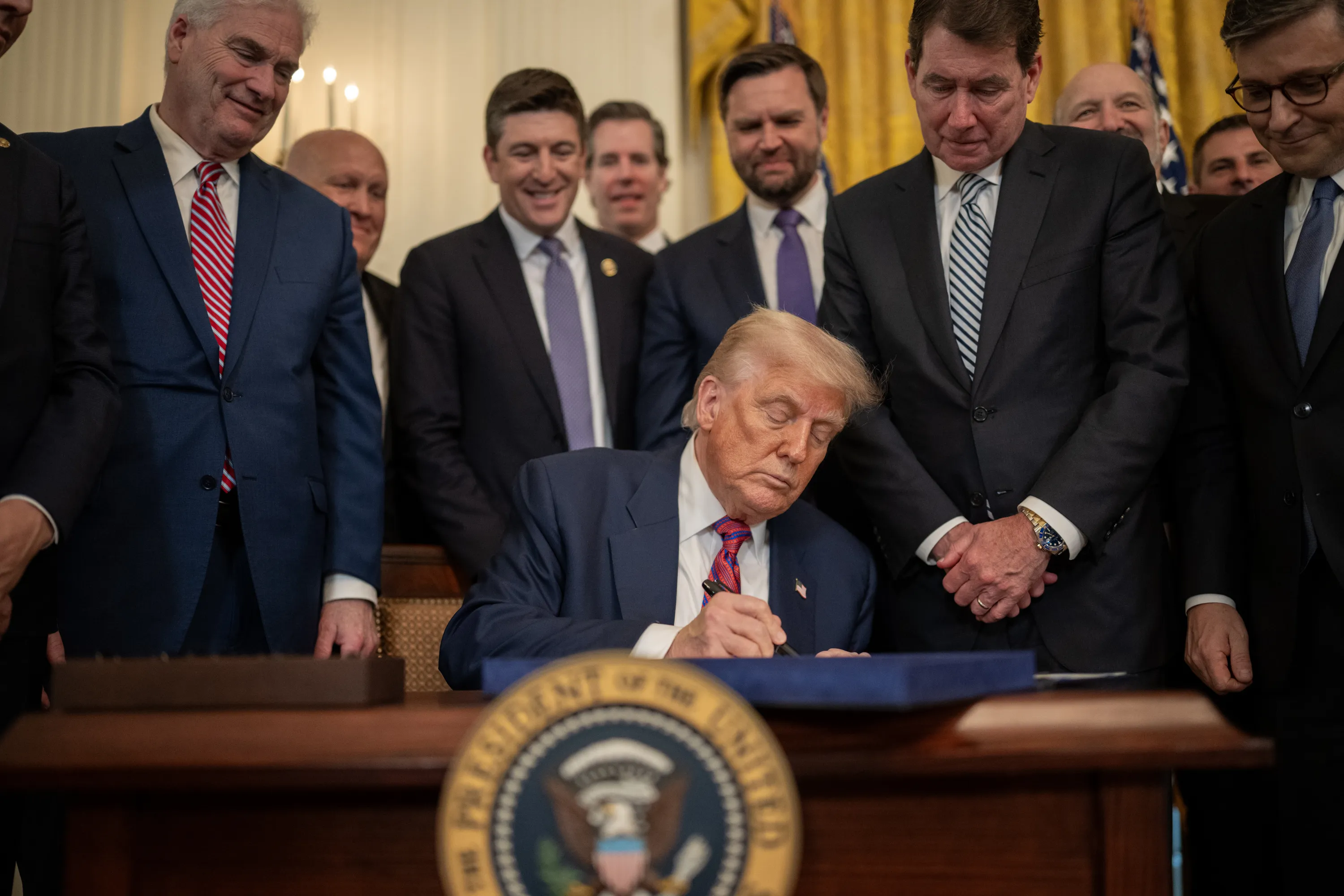Can an 'Uber-ized' economy work in America?

Image: An illustration picture shows the logo of car-sharing service app Uber on a smartphone. REUTERS/Kai Pfaffenbach.
Stay up to date:
United States
Gig workers haven’t taken over the economy yet, but they are rising in numbers. New research from economists Alan Krueger and Larry Katz provides the best estimate to date on how many contingent workers there really are in America. And while on-demand apps aren’t providing many of the new gig jobs, there is strong trend toward more Americans working as contractors. There’s a weaker bond between employers and these workers, yet the American economy still hasn’t adapted to accommodate this shift.
Krueger and Katz count independent contractors, on-call workers, and workers from temp agencies and contract firms as the new independent worker. Their share of total employment is rising, from 9% to almost 16% between 2005 and 2015. And it’s not just low-skill, uber-drivers turning to contract work out of desperation—the increase in alternative work spans all education levels. Americans with a college degree are most likely to be contract workers, and this group saw the biggest gains. Contingent work has also become more common across a variety of industries and occupations.

The American economy is changing. More automation and globalization means less certainty, which could make traditional employment less appealing. Employment security these days requires workers to build fungible skills they can take to different employers. Working for one employer may appear more secure in the short run, but it also means dependence on one firm and a bigger investment in skills unique to that one employer. Even if there’s less security, there are benefits to broadening your skills and contact base by working as a contractor for several different employers, some times at once.
The problem is that the American economy is designed for long-term employment relationships where one employer takes care of you by offering healthcare, retirement benefits, and a certain income. This design leaves contract workers vulnerable. Labor activists would like to see gig workers get the same security regular employees get. But their proposals for unionizing workers, offering overtime pay, and forcing gig employers to treat contractors as employees are trying to fit a square peg in a round hole. The economy has changed and so has the best way to reward work and take care of employees.
Economists at the Brookings Institution advocate a new, third category of worker. They argue we can provide more security, without undermining the gig relationship, by relying on intermediaries (independent of any one employer) to create pools of gig workers and offer the same benefits employers used to. So far the private sector doesn’t offer many options for contingent workers. The intermediary can offer insurance and services like workers compensation, disability, health insurance, tax withholding, and retirement benefits. Creating the intermediaries described by Brookings might take government intervention and regulation to make sure workers get a fair deal. It’s the right idea; decoupling benefits from employers is the easiest way to modernize the American economy. But it doesn’t go far enough—it simply pushes what employers used to offer to a third party. Modern American workers also face new risks and they need more support than what employees typically receive.
For instance, one disadvantage of gig work is your income is more unpredictable. But there exists a solution. President Obama and economist Robert Schiller recently revived an old think tank idea,insurance against a big, permanent drop in your income. The idea is that if you lose your job and have to take another, lower paid one, the government or insurance company will pay you some of your lost wages.
It is a great way to protect workers from their jobs becoming obsolete. But in practice, insurance from a permanent wage drop is hard to finance without significant government subsidies. The wage drops Schiller wants to insure against tend to adversely impact the entire economy for years at a time. Take the decline of manufacturing in America. It displaced many good jobs and left many Americans without an equally good alternative. But there hasn’t been an equal size gain in quality service jobs, at least not for workers with similar skills and education. A viable insurance product normally requires a large pool of similar people who experience good and bad luck in equal measure. It’s hard to insure against a near certain global trend that will effect almost everyone—at least at viable insurance premiums.
But wage insurance is great way to hedge a idiosyncratic, temporary income changes. It’s perfect for gig workers because their income can vary based on the local economy or just having a bad week. If one uber-driver has a bad week, another might have a good one. Or the economy may be down one year, and there’s less work, but it will be up the following year. These kinds of risks can be pooled across different gig workers, over time and can mean a steady pay check.
Wage insurance for gig workers creates an incentive to work less since they’d get paid no matter what. But there are solutions to wage moral hazard. Insurers can calculate an average wage level, based on earnings history. If the gig worker doesn’t maintain it for a long period of time (and can’t prove disability or personal hardship) his insurance coverage decreases too.
Every couple hundred years our relationship with work seems to change. Centuries ago most people worked at home, then they went to factories and offices, now they are going from job to job. Rather than fight it we need to embrace the change and find creative ways to provide the security toward these early adapters of the new way of working.
Don't miss any update on this topic
Create a free account and access your personalized content collection with our latest publications and analyses.
License and Republishing
World Economic Forum articles may be republished in accordance with the Creative Commons Attribution-NonCommercial-NoDerivatives 4.0 International Public License, and in accordance with our Terms of Use.
The views expressed in this article are those of the author alone and not the World Economic Forum.
Forum Stories newsletter
Bringing you weekly curated insights and analysis on the global issues that matter.
More on Economic GrowthSee all
Muhammad Osama Khan and James Balzer
September 18, 2025
Eric White and Elia Tziambazis
September 18, 2025
Lars Holmquist
September 17, 2025
Dante Disparte
September 17, 2025
Hazuki Mori and Luigi Scatteia
September 17, 2025
Mekhla Jha
September 15, 2025






